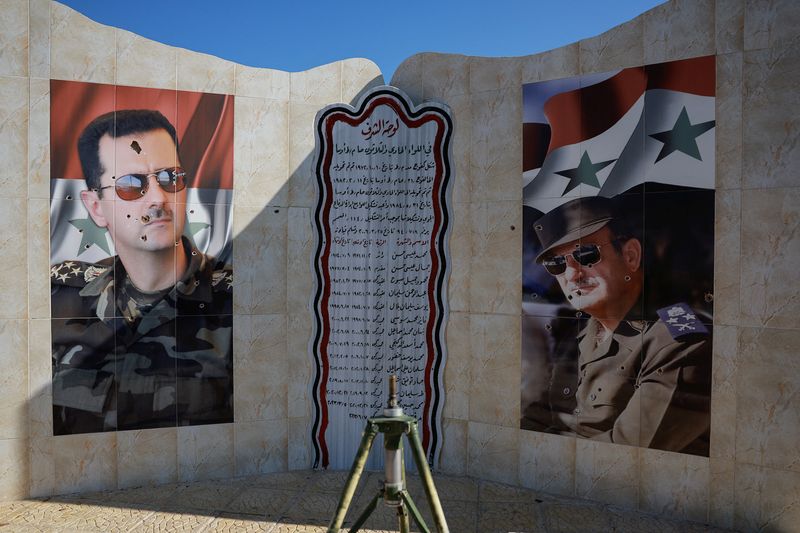Physical Address
304 North Cardinal St.
Dorchester Center, MA 02124
Physical Address
304 North Cardinal St.
Dorchester Center, MA 02124

By Parisa Hafezi
DUBAI (Reuters) – In the final days before his ouster, Syrian President Bashar al-Assad complained to Iran’s foreign minister that Turkey was actively supporting Sunni rebels in their offensive to topple him, two Iranian officials told Reuters this week.
Five decades of rule by the Assad family ended on Sunday when he fled to Moscow, where the government granted him asylum. Iran backed Assad in Syria’s long civil war and his ouster was seen as a major blow to Iran’s “Axis of Resistance”, a political and military alliance opposed to Israeli and US influence in the Middle East.
As rebel forces from Hayat Tahrir al-Sham (HTS), formerly linked to al-Qaeda, seized major cities and advanced on the capital, Assad met with Iranian Foreign Minister Abbas Araqchi in Damascus on December 2.
At the meeting, Assad expressed anger at what he said were Turkey’s intensified efforts to oust him from power, a senior Iranian official said. Arakci assured Assad of Iran’s continued support and promised to raise the issue with Ankara, the official said.
The next day, Arakci met with Turkish Foreign Minister Hakan Fidan to express Tehran’s deep concern over Ankara’s support for the rebel advance.
“The meeting was tense. Iran has expressed displeasure over Turkey’s alignment with US and Israeli agendas and conveyed Assad’s concerns,” said another Iranian official, referring to Ankara’s support for the rebels and cooperation with Western and Israeli interests in targeting Iran’s allies in the region.
Fidan, the official said, blamed Assad for the crisis, arguing that his failure to engage in genuine peace talks and years of repressive rule were the root causes of the conflict.
A source in the Turkish Foreign Ministry familiar with Fidan’s conversations said that these were not accurate Fidan’s remarks and added that Arakci did not bring and convey any of Assad’s messages to Turkey, without further explanation.
Fidan told reporters in Doha on Sunday that the Assad regime “had precious time” to address Syria’s existing problems but had not, instead allowing “the slow disintegration and collapse of the regime”.
Iran’s Supreme Leader Ayatollah Ali Khamenei said Wednesday that Assad’s ouster was the result of a plan by the United States and Israel.
He said that one of Syria’s neighbors also played a role and continues to do so. He did not name the country, but it seems he was referring to Turkey.
NATO member Turkey, which controls parts of the country in northern Syria after several cross-border incursions against the Syrian Kurdish IPG militia, has been a major backer of opposition groups aiming to oust Assad since the civil war broke out in 2011.
Assad’s fall has deprived Iran and its ally, the Lebanese group Hezbollah, of a vital ally. Tehran’s ties to Damascus have allowed Iran to extend its influence over a land corridor from its western border through Iraq all the way to Lebanon to supply weapons to Hezbollah.

Iran spent billions of dollars supporting Assad during the war and deployed its Revolutionary Guards to Syria to keep its ally in power.
Hezbollah has also played a big role, sending fighters to support it, but has had to send them back to Lebanon over the past year to fight in a bitter war with Israel – a redeployment that has weakened Syrian government lines.